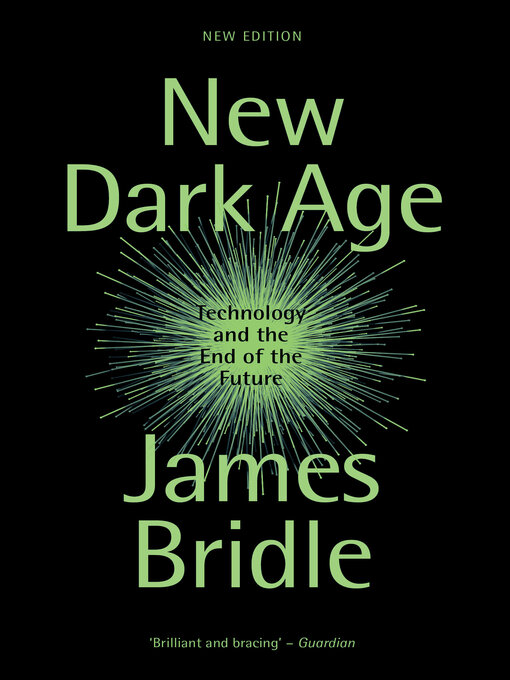“New Dark Age is among the most unsettling and illuminating books I’ve read about the Internet, which is to say that it is among the most unsettling and illuminating books I’ve read about contemporary life.” – New Yorker
As the world around us increases in technological complexity, our understanding of it diminishes. Underlying this trend is a single idea: the belief that our existence is understandable through computation, and more data is enough to help us build a better world.
In reality, we are lost in a sea of information, increasingly divided by fundamentalism, simplistic narratives, conspiracy theories, and post-factual politics. Meanwhile, those in power use our lack of understanding to further their own interests. Despite the apparent accessibility of information, we’re living in a new Dark Age.
From rogue financial systems to shopping algorithms, from artificial intelligence to state secrecy, we no longer understand how our world is governed or presented to us. The media is filled with unverifiable speculation, much of it generated by anonymous software, while companies dominate their employees through surveillance and the threat of automation.
In his brilliant new work, leading artist and writer James Bridle surveys the history of art, technology, and information systems, and reveals the dark clouds that gather over our dreams of the digital sublime.
-
Creators
-
Publisher
-
Release date
July 17, 2018 -
Formats
-
Kindle Book
-
OverDrive Read
- ISBN: 9781786635501
- File size: 2890 KB
-
EPUB ebook
- ISBN: 9781786635501
- File size: 4005 KB
-
-
Languages
- English
-
Reviews
-
Kirkus
June 1, 2018
A British visual artist, journalist, and "New Aesthetic" champion offers nightmarish prophecies on the descent into darkness."Our vision is increasingly universal," writes Bridle, "but our agency is ever more reduced. We know more and more about the world, while being less and less able to do anything about it. The resulting sense of helplessness, rather than giving us pause to reconsider our assumptions, seems to be driving us deeper into paranoia and social disintegration." Like an Orwell of the computer age, he has been shaped by the very forces that now fill him with dread, convinced that there is a connection between climate change and information overload and between the network that nobody understands and the increased disparity between the haves and the have-nots. Though his prose can be dense, Bridle's analytical leaps are both illuminating and terrifying, suggesting that, on levels beyond surveillance and conspiracy, we have unleashed technology to establish systems of such complexity and control that it can be difficult for anyone to understand who's in charge and what they want. The new paradigm requires new language, new perspective, and new understanding. Yet we are losing data and our connection with the past as the data overflow turns the prospects for a brighter future into the new dark age of the manifesto's title. So should we abandon all hope? "Our understanding of those systems and their ramifications, and of the conscious choices we make in their design, in the here and now, remain entirely within our capabilities," he concludes. "We are not powerless, not without agency and not limited by darkness. We only have to think, and think again, and keep thinking. The network--us and our machines and the things we think and discover together--demands it."Sci-fi meets the aesthetic vanguard in cyberspace, where a new metalanguage addresses problems and solutions alike.COPYRIGHT(2018) Kirkus Reviews, ALL RIGHTS RESERVED.
-
Formats
- Kindle Book
- OverDrive Read
- EPUB ebook
subjects
Languages
- English
Loading
Why is availability limited?
×Availability can change throughout the month based on the library's budget. You can still place a hold on the title, and your hold will be automatically filled as soon as the title is available again.
The Kindle Book format for this title is not supported on:
×Read-along ebook
×The OverDrive Read format of this ebook has professional narration that plays while you read in your browser. Learn more here.

